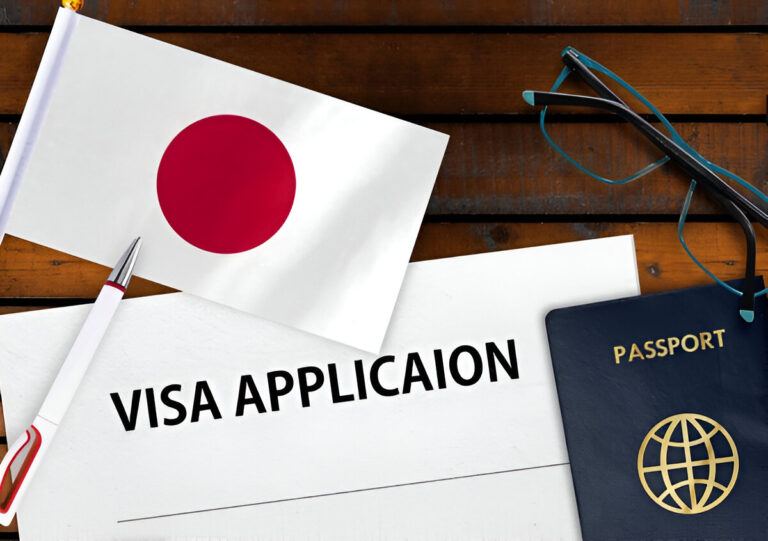Australia Jobs for Immigrants – Work in Australia
Australia boasts a robust economy, stunning landscapes, and a thriving multicultural society. For immigrants seeking better career prospects and a higher standard of living, Australia stands out as a dream destination. Whether you’re a skilled worker, a tradesperson, or someone seeking new beginnings, the Australian job market offers a plethora of opportunities for immigrants.
If you’ve ever considered making the leap, this comprehensive guide will walk you through the essentials of working in Australia, from visa requirements to job search strategies, high-demand industries, and tips for a successful relocation. Let’s get started on your journey to success down under!
Why Work in Australia?
1. High Wages and Benefits
Australia ranks among the top countries for offering competitive salaries and excellent employee benefits. On average, workers in Australia enjoy higher wages compared to many other countries, coupled with perks like health insurance, superannuation (retirement savings), and paid leaves.
2. Thriving Job Market
With one of the most resilient economies globally, Australia consistently demands skilled professionals across various sectors. The country’s low unemployment rate ensures ample job opportunities for immigrants.
3. Quality of Life
Australia is synonymous with a high standard of living. Immigrants appreciate the country’s excellent healthcare system, world-class education, and safe communities.
4. Pathway to Permanent Residency
Working in Australia can be your gateway to permanent residency, granting you and your family long-term benefits and security.
Types of Visas for Immigrants in Australia
Before applying for jobs, it’s crucial to understand the visa options available for immigrants.
1. Skilled Independent Visa (Subclass 189)
This visa is designed for skilled workers not sponsored by an employer, state, or family member. It allows you to live and work anywhere in Australia as a permanent resident.
2. Employer Nomination Scheme (Subclass 186)
If you have an Australian employer willing to sponsor you, this visa provides a pathway to permanent residency.
3. Temporary Skill Shortage Visa (Subclass 482)
Popular among immigrants, this visa allows you to work for an approved employer for up to four years in a job listed on the Skilled Occupation List (SOL).
4. Regional Sponsored Migration Scheme (Subclass 187)
This visa is ideal for those willing to work in regional areas of Australia. It offers a pathway to permanent residency.
For more information on visa requirements, visit the official Australian Department of Home Affairs website.
Top Industries for Immigrants in Australia
1. Healthcare and Social Assistance
This sector is the largest and fastest-growing in Australia, with consistent demand for skilled professionals.
- Popular roles: Nurses, aged care workers, physiotherapists, doctors, and social workers.
- Reason for demand: Aging population, increased healthcare needs, and government initiatives to improve social services.
2. Construction
Australia’s booming infrastructure projects create a high demand for skilled and semi-skilled workers.
- Popular roles: Electricians, plumbers, carpenters, civil engineers, and construction managers.
- Reason for demand: Urban development, housing projects, and public infrastructure upgrades.
3. Information Technology (IT)
The tech industry is thriving, with companies seeking specialists to drive innovation and digital transformation.
- Popular roles: Software developers, cybersecurity experts, data analysts, and IT project managers.
- Reason for demand: Rapid digitalization across industries and a growing tech startup ecosystem.
4. Agriculture and Farming
Agriculture plays a vital role in Australia’s economy, offering seasonal and permanent jobs.
- Popular roles: Fruit pickers, farm managers, livestock handlers, and horticulturists.
- Reason for demand: Seasonal labor shortages and the need for skilled farming techniques.
5. Education and Training
Australia’s education sector is expanding, particularly in regional areas.
- Popular roles: Teachers, trainers, and academic researchers.
- Reason for demand: Growing student population and demand for specialized educators in STEM fields.
6. Hospitality and Tourism
As a global tourist hotspot, Australia’s hospitality sector offers abundant opportunities.
- Popular roles: Chefs, hotel managers, tour guides, and bartenders.
- Reason for demand: Post-pandemic recovery and increasing international tourism.
High-Demand Jobs in Australia for Immigrants
Australia’s job market is vast, but certain industries are particularly in need of skilled immigrants. Below are the top sectors with high demand:
1. Healthcare and Social Assistance
Jobs like nurses, doctors, and aged care workers are consistently in high demand.
- Average salary: AUD 70,000 – AUD 120,000 annually.
2. Construction
Skilled tradespeople, including carpenters, electricians, and plumbers, are sought after.
- Average salary: AUD 50,000 – AUD 100,000 annually.
3. Information Technology (IT)
Roles in cybersecurity, software development, and data analytics are booming.
- Average salary: AUD 80,000 – AUD 150,000 annually.
4. Education and Training
Teachers, especially in STEM subjects, are in demand.
- Average salary: AUD 60,000 – AUD 100,000 annually.
5. Agriculture and Farming
Seasonal and full-time roles in farming, fruit picking, and livestock management are popular among immigrants.
- Average salary: AUD 40,000 – AUD 70,000 annually.
Salary Expectations and Benefits of Working in Australia
Average Salaries by Industry
The following salary ranges give an idea of what to expect in Australia’s most immigrant-friendly industries:
| Industry | Average Salary (AUD/year) |
| Healthcare | 70,000 – 120,000 |
| Construction | 50,000 – 100,000 |
| Information Technology | 80,000 – 150,000 |
| Agriculture | 40,000 – 70,000 |
| Education | 60,000 – 100,000 |
| Hospitality | 40,000 – 70,000 |
Key Benefits of Working in Australia
- High Wages Australia is known for offering competitive salaries that reflect the cost of living and skill level.
- Employee Benefits Workers enjoy benefits like paid annual leave, maternity/paternity leave, and sick leave. The healthcare system ensures employees have access to affordable medical care.
- Superannuation (Retirement Savings) Employers are required to contribute to a superannuation fund for employees, providing financial security in retirement.
- Work-Life Balance Australians value work-life balance, with many jobs offering flexible work hours and generous leave entitlements.
- Pathway to Permanent Residency Certain job roles and visa programs can lead to permanent residency, offering long-term stability for immigrants and their families.
Eligibility Requirements for Jobs in Australia
To secure a job in Australia as an immigrant, you’ll need to meet specific eligibility requirements:
1. Valid Visa
You must have a work visa or a visa with work rights. Popular visas for workers include:
- Skilled Independent Visa (Subclass 189)
- Temporary Skill Shortage Visa (Subclass 482)
- Employer Nomination Scheme (Subclass 186)
2. Skills Assessment
Certain professions require a skills assessment to verify your qualifications meet Australian standards. For example, tradespeople may need certification from Trades Recognition Australia (TRA).
3. English Proficiency
Most visas require proof of English language proficiency through tests like IELTS or TOEFL.
4. Qualifications and Experience
Your qualifications should align with the job requirements. In some cases, your credentials may need to be recognized or accredited in Australia.
5. Health and Character Requirements
Applicants must undergo a health examination and provide police clearance certificates to demonstrate good character.
How to Secure a Job in Australia as an Immigrant
1. Tailor Your Resume to Australian Standards
An Australian-style resume is concise and highlights your skills, experience, and achievements relevant to the job you’re applying for. Avoid including personal details like your photo, marital status, or religion.
2. Leverage Online Job Portals
Popular platforms include:
3. Engage Recruitment Agencies
Recruitment agencies like Hays, Randstad, and Adecco specialize in matching immigrants with employers looking for talent.
4. Network and Build Connections
Attend industry events, join professional associations, and connect with peers on LinkedIn to expand your network.
5. Consider Regional Areas
Smaller cities and regional areas often have less competition for jobs and provide incentives for immigrants willing to settle there.
Tips for a Smooth Relocation
Relocating to a new country is no small feat. Here are some tips to help you settle in Australia:
1. Arrange Temporary Accommodation
Before you arrive, book temporary housing to give yourself time to explore neighborhoods and find a permanent home.
2. Open a Bank Account
Having an Australian bank account is essential for receiving your salary and managing your finances. Most banks allow you to open an account online before you arrive.
3. Understand Taxation and Superannuation
Register for a Tax File Number (TFN) and familiarize yourself with the Australian taxation system. Learn about superannuation contributions to secure your retirement savings.
4. Embrace the Culture
Australians are known for their friendly and laid-back demeanor. Engage with your community and participate in local events to feel at home.
Conclusion
Australia offers immense opportunities for immigrants looking to work and thrive in a new environment. With its strong economy, high demand for skilled workers, and excellent quality of life, it’s no wonder that thousands of immigrants choose Australia as their new home each year.
Start your journey today by exploring visa options, preparing your resume, and applying for jobs in high-demand industries. The land down under awaits you with open arms and endless possibilities!
Frequently Asked Questions
1. Can I work in Australia without a visa?
No, you must have a valid visa with work rights to legally work in Australia.
2. Is it easy to find a job as an immigrant?
While the job market is competitive, skilled immigrants in high-demand fields often find opportunities quickly.
3. Are there jobs available for non-skilled workers?
Yes, industries like agriculture, hospitality, and retail often have openings for non-skilled or semi-skilled workers.
4. How long does it take to get a work visa?
The processing time varies depending on the visa type and your circumstances. It’s best to check the official guidelines for accurate timelines.




